Hearing the Persian language while someone reciting a poem or song, it may seem soft and ear-catching. Persian language is one of the oldest ones in the world and has a great impact on world literature with great poets like Hafez (1315-1390) or Rumi (1207 – 1273). Most Iranian young people can speak English and help you during your trip. However, if you planning to travel to Iran, it is better to know more about this language to have a better trip.
Here we provide you some basic information about the Persian language. It is good to know about the Persian alphabet and numbers. It helps you to read the number plates of the cars, the prices, and some signs while traveling Iran.
Some interesting facts about Persian language
First of all, it is good to know some interesting facts about Persian language.
- Persian or Farsi is spoken in Iran, Afghanistan, and Tajikistan and is an important language in the Middle East
- More than 120 million people speak Persian today
- It is the language of poetry and Iran boasts several renowned poets like Hafez, Sa’di, and Molana who had a great impact on world literature
- It is a member of the Indo-Iranian branch of the Indo-European language just like many other languages like English, French, Russian, Greek, and Armenian.
- The Persian script was old Persian cuneiform, Pahlavi, Aramaic, and Avestan and in the 9th century, the Tahirid Dynasty replaced Pahlavi with the Arabic script
- The oldest records of written old Persian are cuneiforms dated back from the 6th century BCE
- Persian grammar is not complicated at all. For there are no genders and no articles. Most of the plurals are regular
- There are different dialects of Persian spoken in different parts of Iran
- Written Persian is different from the spoken version to some extent. So to have a conversation, it is better to use the spoken version
Is Persian different from Arabic?
Despite Arabic numerals and scrips of Persian language, these two languages have a different origins. However, you can find similar words due to the role of Islam in Iran for centuries. Here you can find Persian numerals and equivalents in these tables:
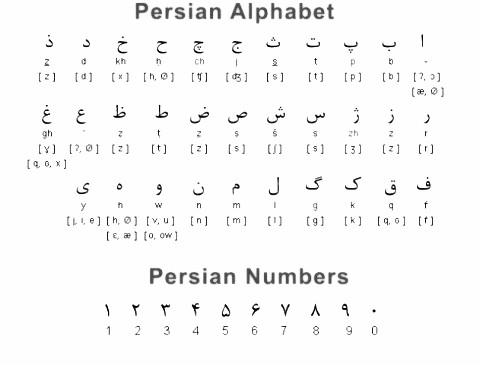
Read also: A Complete Guide to Iran Currency
Greetings in Persian
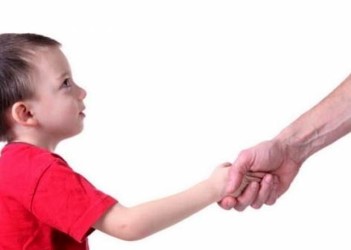
Knowing about the greeting etiquette in another language helps you to connect with natives in no time. Besides, Iranians are one of the friendliest people and by learning how to greet, you can begin great friendships.
In Iran, they say hello (salām) to begin a conversation. Here you can find some equivalents and phrases to begin the conversation:
Hello: salām
How are you: Chetori?
I’m fine: khoobam
What is your name?: Esmet chieh?
My name is ….: Esm-e man ….
Thank you: mamnoon/merci
Good morning: sobh bekheir
Good night: shab bekheir
See you later: mibinament
Welcome: khosh āmadin
Please: lotfan
What’s up?: che khabar?
Excuse me: bebakhshid
Nice to meet you: khoshvaghtam
Bye: khodā hafez
You can have a conversation with these few words. In fact, these help you to communicate with different people and to have a better experience with the locals.
Persian language in restaurants

In order to have your favorite dish, it is not bad to know some Persian words. Here you can find some basic ones to order your food:
Breakfast: sobhāneh
Lunch: nāhār
Dinner: shām
Water: āb
Drink: nooshidani
Cold: sard
Raw: napokhteh
Bill: soorat hesāb
Salt: namak
Pepper: felfel
Tissue: dastmāl
Fork: changāl
Spoon: ghashogh
Knife: chaghoo
Bon appetite: noosh-e jan
I am thirsty: teshneh hastam
Most restaurants have English menu. Otherwise, you can ask somebody to tell you about the dishes and prices. May words and expressions may help you to leave the restaurant happy and satisfied!
Read also: Top 20 Iranian Foods You Should Not Miss!
Persian language on street
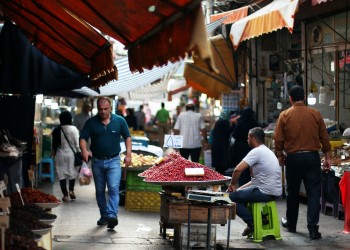
It helps you to speak some key phrases in Persian on street. In this way, you can communicate with people and ask what you need:
Yes: baleh
No: na
Watch out: movāzeb bāsh
I need help: komak mikhām
Do you need help: komak mikhāy?
Bus: otoboos
Street: khiaban
Where is ….?: … kojast?
Right: rāst
Left: chap
Straight: mostaghim
What time is it?: Sā’at chandeh?
Please speak slowly: lotfan āhesteh sohbat kon
Call the police: be police zang bezan
Man: āghā
Woman: khanoom
Child: bacheh
Persian language for shopping
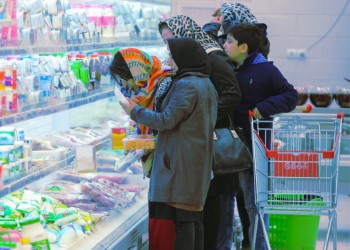
Shopping is one of the activities that the Persian language would help you a lot.
With knowing some sentences you can communicate with shoppers and find your favorite item with a fair price:
How much is this?: in chandeh?
How much should I pay for it?: cheghadr bayad bedam?
Can I try it?: mitoonam emtehān konam?
It is expensive: gerooneh
Give some discount: takhfif bedin
Read also: Cash or Credit? What You Need to Know About Iranian Credit Cards
Good to know some Persian expressions without exact translation
In all languages, there are some expressions and sentences that do not have exact equivalent in other languages. Persian language is not an exception at all. Here we have two of these expressions, which are used very frequently in Persian.
Khasteh nabāshid
This expression, which means ‘don’t be tired’, is heard here and there in daily conversation. As a kind of greeting, you can use it while entering a shop. You can also use this expression while you want to start a conversation with somebody who is busy doing some job!
Ghābel nadāreh
You may hear this expression while complimenting about an item or when you want to pay for something. It means “it doesn’t worth”, which means that you worth more than that! However it is a part of Persian etiquette ‘ta’arof’ and so you should not take it seriously!
Do not forget that bargaining is one of the main parts of shopping in Iran. Hence, do not forget to bargain whenever you want to buy something. “Akharesh chand?” which means ‘what is your final price?’ is one of the golden phrases that you can use in your shopping.
Read also: Travel to Iran: Tips for First Travelers
Speaking Persian when you do not feel good

When you feel ill it is important to convey your words to people around you. Here there are some words that can help you in this situation:
Hospital: bimārestan
I’m sick: mariz hastam
Pain: dard
Injury: āsib
Wound: zakhm
I have blood pressure: feshār-e khoon dāram
Headache: sardard
I am diabetic: ghand dāram
Headache: sardard
I have low blood pressure: feshāram oftādeh
Stomach ache: deldard
Angina (Chest Pain): ghalbam dard mikonad
Read also: Some tips for traveling in the time of COVID-19
A suggestion to have a great lingual experience during your trip
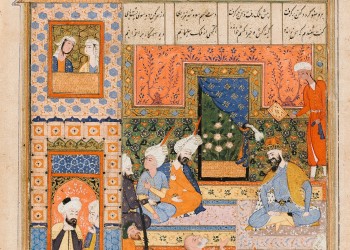
Traveling to Iran, ask some locals who know Persian literature to read out some poems by Hafez or a piece of Shahnameh for you.
In this way, you can enjoy the melody of the language and enjoy its rhythm and words.
You can also ask an Iranian to play some traditional Persian music for you. In this way, you can enjoy the Persian language and Persian music together.
You can also book a tour for Shiraz or Mashhad in order to visit the tombs of Hafez in Shiraz or Ferdowsi near Mashhad.

Read also: Some 15 Best Things to Do in Iran
Last but not the least
Language is a part of civilization and a main part of culture for each society. So do not miss this part while traveling different parts of word. Knowing a little about the language of your destination helps you to communicate with wider range of locals and have more experience.

